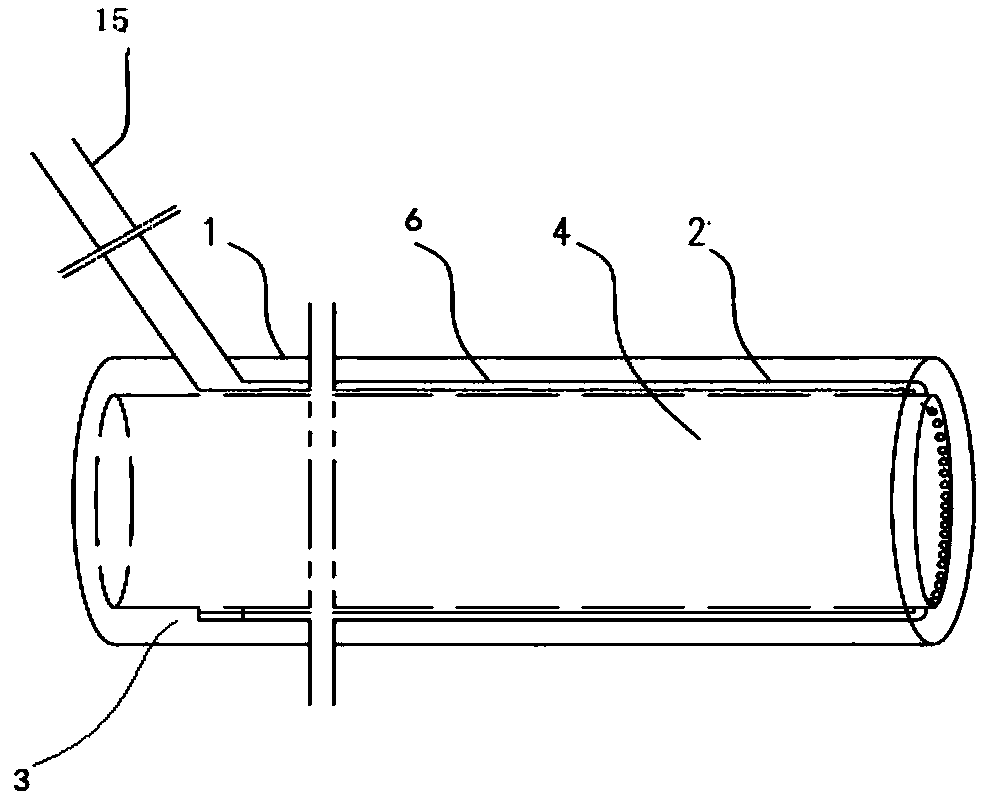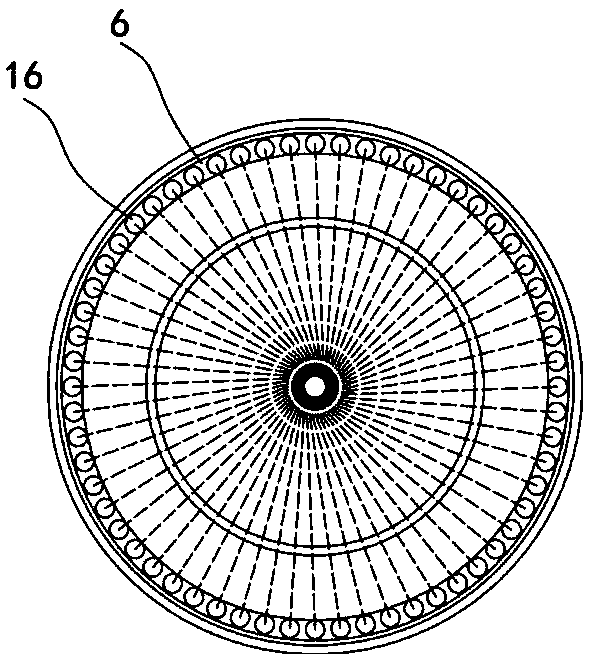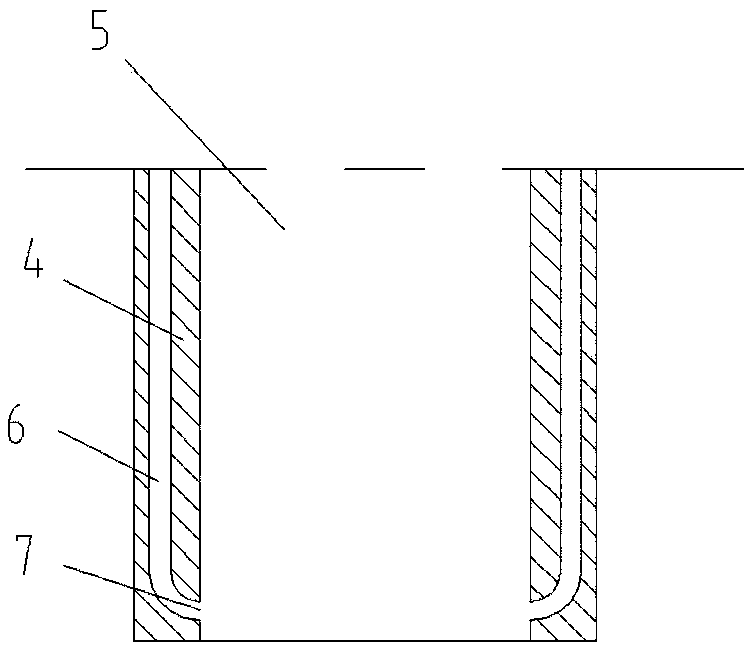Laser catheter
A laser and catheter technology, used in catheters, medical science, surgery, etc., can solve problems such as inability to ablate tissue and damage to blood vessel walls.
- Summary
- Abstract
- Description
- Claims
- Application Information
AI Technical Summary
Problems solved by technology
Method used
Image
Examples
Embodiment 1
[0092] Such as Figure 1-15 Among them, a laser catheter includes a tube body 1, and the tube body 1 includes a head end 2, a tail end 3, a tube wall 4 and a tube cavity 5, and a plurality of ring-shaped continuous or discontinuous optical fibers are fixed in the tube wall 4 6. After the optical fiber 6 extends to a preset distance from the head end 2 in the tube wall 4, set the optical fiber bending 7, or the optical fiber side hole 17, or the ring optical fiber 61, or the optical reflection element, or combine the optical fiber bending 7, or The optical fiber side hole 17, or the annular optical fiber 61 and the optical reflective element are arranged to change the direction of the laser light, so that the laser light is directed to the lumen 5 after the longitudinal axis direction of the tube body 1 is changed to the radial direction of the cross section, and then the tissue entering the lumen 5 Perform ablation. Further, a plurality of optical fibers 6 are continuously or...
Embodiment 2
[0098] On the basis of Example 1, the preferred scheme is as image 3 Among them, the optical fiber 6 is extended through the tube wall to a preset distance from the head end 2, and an optical fiber bend 7 is set.
Embodiment 3
[0100] On the basis of Example 1, the preferred scheme is as Figure 4 with Figure 5 Among them, the optical fiber 6 is extended through the pipe wall to a preset distance from the head end 2, and a total reflection device 8 is provided. The total reflection device 8 is composed of an optically dense material and an optically sparse material to form a reflection interface, and the incident angle is set to be greater than or equal to the critical angle Elements make up. After the laser is transmitted to the head end through the optical fiber 6, it is totally reflected by the total reflection device 8, so that the laser is changed from the longitudinal axis direction of the tube body 1 to the radial direction of the cross section, and then shoots towards the lumen 5;
[0101] Further, the reflection interface of the total reflection device 8 is set to two or more, and the two or more interfaces are arranged at an angle in turn, so that the laser light is totally reflected twic...
PUM
 Login to View More
Login to View More Abstract
Description
Claims
Application Information
 Login to View More
Login to View More - R&D
- Intellectual Property
- Life Sciences
- Materials
- Tech Scout
- Unparalleled Data Quality
- Higher Quality Content
- 60% Fewer Hallucinations
Browse by: Latest US Patents, China's latest patents, Technical Efficacy Thesaurus, Application Domain, Technology Topic, Popular Technical Reports.
© 2025 PatSnap. All rights reserved.Legal|Privacy policy|Modern Slavery Act Transparency Statement|Sitemap|About US| Contact US: help@patsnap.com



